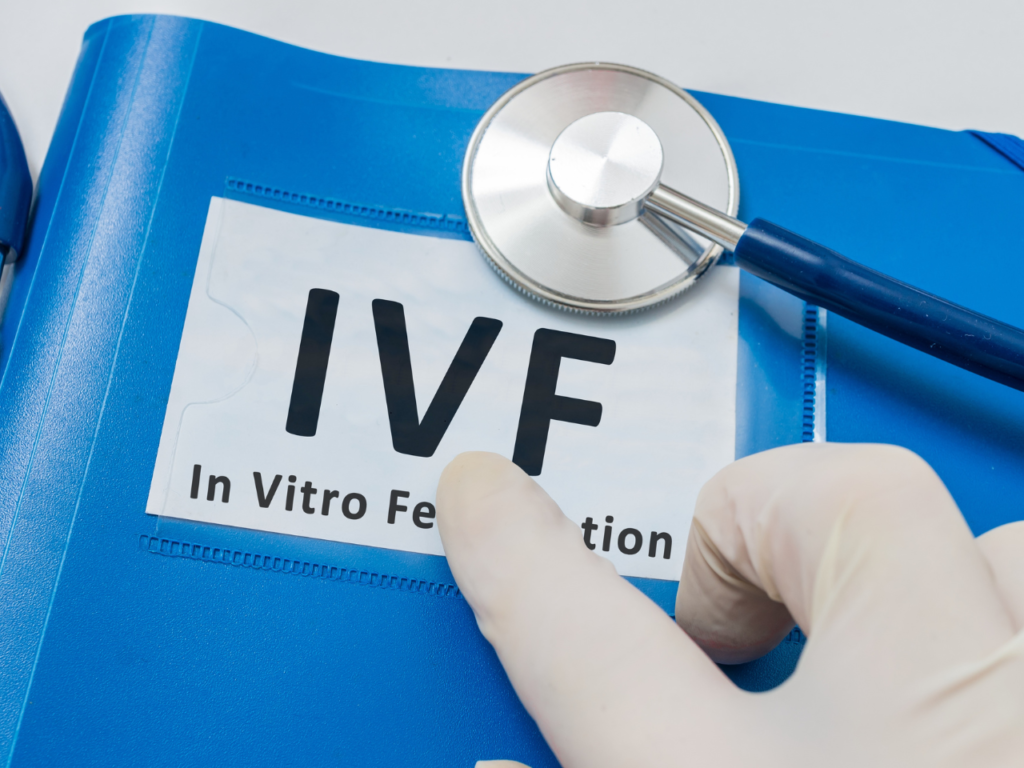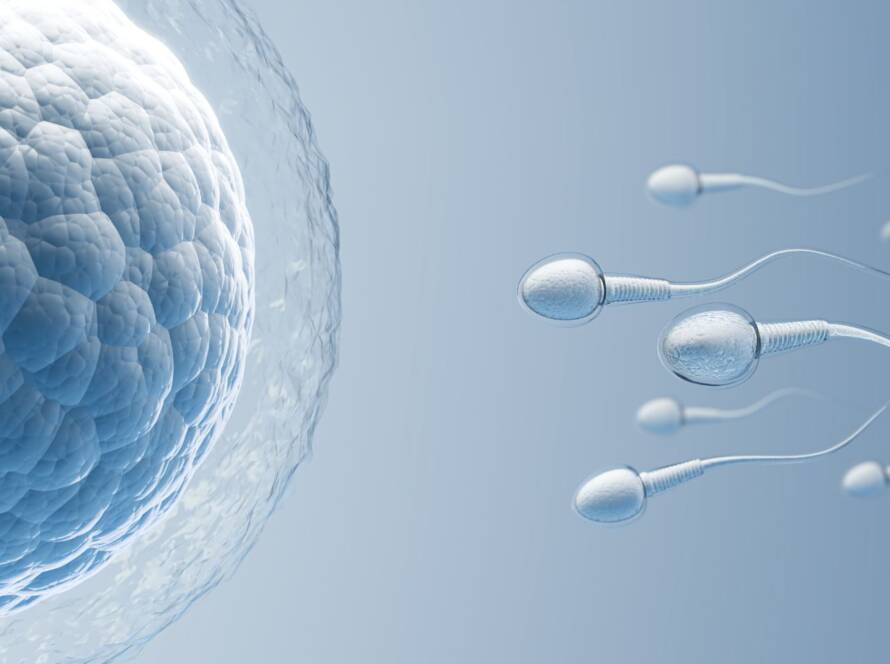Going through an IVF (In Vitro Fertilization) cycle is a journey filled with hope, but when it ends in failure, it can be emotionally devastating. Many couples wonder why IVF failed despite everything appearing to go well. Understanding the causes of IVF failure, preventing future failures, and knowing the next steps can help couples stay positive and make informed decisions about their fertility journey.
At Mithran Fertility Center, Chidambaram, we provide personalized treatment plans and advanced fertility techniques to increase the chances of success. In this blog, we will explore the common causes of IVF failure, strategies to prevent future failures, and the best steps to take after an unsuccessful IVF cycle.
What Happens During IVF and Where Can It Fail?
IVF involves multiple steps that must align perfectly to achieve a successful pregnancy:
Ovarian Stimulation: Hormonal medications stimulate the ovaries to produce multiple eggs.
Egg Retrieval: Mature eggs are collected from the ovaries.
Fertilization: The retrieved eggs are fertilized with sperm in a lab.
Embryo Development: The fertilized eggs develop into embryos.
Embryo Transfer: A healthy embryo is transferred into the uterus.
If any of these steps do not progress as expected, IVF may not succeed, resulting in a failed cycle.
Common Causes of IVF Failure
1. Poor Embryo Quality
Embryo quality is one of the most critical factors for IVF success. Poor-quality embryos may fail to implant or stop developing after implantation.
Why It Happens:
Chromosomal abnormalities.
Poor egg or sperm quality.
Suboptimal lab conditions affecting embryo growth.
Tip: Genetic testing (PGT-A) can identify chromosomally normal embryos, improving the chances of successful implantation.
2. Implantation Failure
Even if the embryo is healthy, it may fail to implant in the uterine lining. Implantation failure is a common cause of IVF failure.
Why It Happens:
Thin or unreceptive uterine lining.
Autoimmune or inflammatory conditions.
Poor embryo-uterine communication.
Tip: Endometrial receptivity testing (ERA) can help determine the optimal time for embryo transfer.
3. Hormonal Imbalance
Hormonal imbalances can disrupt the delicate processes of ovulation, fertilization, and implantation, leading to IVF failure.
Why It Happens:
Insufficient progesterone levels.
High prolactin levels interfering with implantation.
Thyroid disorders affecting ovulation.
Tip: Hormonal monitoring and tailored medication protocols can improve hormonal balance.
4. Uterine Abnormalities
Structural issues in the uterus can prevent successful implantation and lead to repeated IVF failures.
Common Uterine Conditions:
Fibroids or polyps.
Scar tissue (Asherman’s syndrome).
Congenital abnormalities of the uterus.
Tip: Laparoscopic or hysteroscopic procedures can help address uterine abnormalities before IVF.
5. Egg or Sperm Quality Issues
Low-quality eggs or sperm can impact fertilization and embryo development, leading to failed IVF cycles.
Why It Happens:
Advanced maternal age affecting egg quality.
Low sperm motility or abnormal morphology.
Tip: Intracytoplasmic sperm injection (ICSI) can help overcome sperm-related issues, while egg quality can be enhanced with supplements like CoQ10.
6. Genetic Abnormalities
Embryos with chromosomal abnormalities are less likely to implant or may lead to miscarriage.
Why It Happens:
Age-related decline in egg quality.
Genetic mutations in sperm or egg.
Tip: Preimplantation Genetic Testing for Aneuploidy (PGT-A) can identify genetically normal embryos for transfer.
Factors That Affect IVF Success Rates
1. Age of the Woman
Women under 35 have higher success rates, while women over 40 may experience lower success due to declining egg quality.
2. Uterine Receptivity
The thickness and receptivity of the uterine lining play a vital role in implantation success.
3. Embryo Quality and Genetics
Higher-quality embryos with normal chromosomes are more likely to implant successfully.
4. Lifestyle Factors
Smoking, alcohol, poor nutrition, and high-stress levels can impact fertility and IVF success.
How to Prevent IVF Failure: Expert Strategies

1. Optimize Egg and Sperm Quality
Take fertility-boosting supplements like CoQ10, Vitamin D, and Omega-3 fatty acids.
Follow a nutrient-rich, fertility-friendly diet.
Avoid smoking, alcohol, and excessive caffeine.
2. Improve Uterine Environment
Consider endometrial scratching to enhance uterine receptivity.
Use progesterone supplements to support embryo implantation.
3. Use Advanced Fertility Techniques
ICSI (Intracytoplasmic Sperm Injection): Improves fertilization rates in cases of male infertility.
PGT-A (Preimplantation Genetic Testing): Identifies genetically normal embryos for transfer.
ERA (Endometrial Receptivity Analysis): Determines the best time for embryo transfer.
What to Do After IVF Failure: Next Steps
1. Take Time to Heal Emotionally
IVF failure can be emotionally draining. It’s important to allow yourself time to grieve and process your emotions.
2. Schedule a Consultation with Your Fertility Specialist
A detailed review of your IVF cycle can help identify potential reasons for failure and suggest improvements for the next attempt.
3. Consider Additional Tests and Evaluations
Genetic Testing: Identify chromosomal abnormalities.
Immune Testing: Check for autoimmune conditions affecting implantation.
Hysteroscopy or Laparoscopy: Evaluate and treat uterine abnormalities.
4. Explore New Treatment Options
Modified IVF Protocols: Tailored stimulation protocols can improve outcomes.
Donor Eggs or Sperm: Consider alternative options for severe egg or sperm quality issues.
Advanced Treatments to Improve IVF Success
1. Preimplantation Genetic Testing (PGT-A)
PGT-A screens embryos for chromosomal abnormalities, ensuring only genetically normal embryos are transferred.
2. Endometrial Receptivity Analysis (ERA)
ERA identifies the best time to transfer an embryo by determining the uterus’s optimal implantation window.
3. Assisted Hatching
Assisted hatching helps embryos break through the outer shell, improving implantation chances, especially in women over 35.
Why Choose Mithran Fertility Center After IVF Failure?
At Mithran Fertility Center, Chidambaram, we provide:
✅ Customized IVF Protocols for Repeated Failures
✅ Advanced Embryo Monitoring and Genetic Testing
✅ Personalized Counseling and Emotional Support
✅ High Success Rates with Innovative Fertility Techniques
FAQs
Most fertility experts recommend 3-4 IVF cycles for optimal success. However, this varies based on individual factors.
Yes, poor egg quality is a leading cause of failed IVF cycles. Supplements and lifestyle changes can improve egg quality.
Schedule a consultation with your fertility specialist to review your cycle and explore further testing and treatment options.
Yes, PGT-A helps select chromosomally normal embryos, increasing the likelihood of successful implantation.
Yes, chronic stress can disrupt hormone levels and impact IVF outcomes. Practicing stress management techniques can improve success rates.
Conclusion
Experiencing IVF failure can be heart-wrenching, but understanding the causes and exploring advanced treatment options can improve your chances of success. At Mithran Fertility Center, Chidambaram, we provide compassionate care, advanced techniques, and personalized support to help you navigate your fertility journey with confidence




